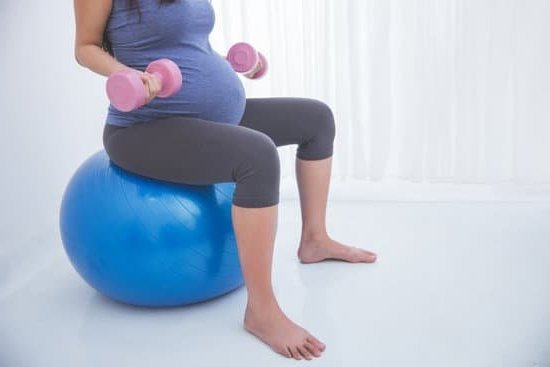Pregnancy is a beautiful and transformative experience, but it also brings about numerous changes in the body. One common concern for many expectant mothers is when their stomach starts to feel hard during pregnancy. Understanding these changes and knowing when to seek medical advice is essential for a healthy pregnancy. In this article, we will explore the different stages of pregnancy and discuss when the stomach typically becomes hard, as well as provide tips for relieving discomfort.
During pregnancy, the body undergoes a myriad of physiological and hormonal changes to accommodate the growing fetus. These changes can vary from woman to woman, making it essential to understand what is normal and when to be concerned.
From the early stages of pregnancy through the third trimester, the abdominal muscles go through significant development, leading to changes in stomach hardness. It’s important for expectant mothers to be aware of these changes and know when they may indicate an issue that requires medical attention.
As we delve into this topic, we will discuss how the development of abdominal muscles contributes to a hard stomach during mid-pregnancy and explore reasons for a hard stomach in the third trimester. We will also touch upon Braxton Hicks contractions and their role in causing temporary hardness in the stomach.
By the end of this article, you will have a better understanding of these natural changes in your body during pregnancy and gain insights into when it’s normal versus concerning for your stomach to feel hard.
Early Pregnancy
During the early stages of pregnancy, many women may start to notice their stomach feeling hard. This is often due to the uterus beginning to expand and grow to accommodate the developing fetus. Typically, the stomach doesn’t start to feel noticeably hard until around 12 weeks gestation, which is the end of the first trimester. However, some women may experience this sensation earlier or later in their pregnancies.
Here are some common signs that your stomach may be starting to feel hard during early pregnancy:
- The uterus beginning to rise above the pelvic bone
- Feeling a firmness in the lower abdomen
- Clothes fitting tighter around the waist
As the uterus continues to grow and expand throughout pregnancy, it’s important for expectant mothers to pay attention to any changes in their abdominal sensations. If at any point you have concerns about the hardness of your stomach or if it is accompanied by severe pain or bleeding, it’s crucial to seek medical advice from a healthcare provider.
It’s also essential for pregnant individuals to focus on maintaining a healthy lifestyle during this critical time. Eating a balanced diet, staying hydrated, getting enough exercise and sleep can help support overall well-being and potentially reduce discomfort associated with stomach hardness during pregnancy.
Mid-Pregnancy
During mid-pregnancy, typically around the second trimester, many women start to notice changes in their abdominal muscles. As the baby continues to grow and develop, the uterus expands and puts pressure on the abdominal wall, causing it to feel tight and firm. This can often lead to discomfort or even a hard stomach sensation.
Abdominal Muscle Stretching and Separation
One of the main reasons for a hard stomach during mid-pregnancy is due to the stretching and separation of the abdominal muscles. This occurs as the uterus expands to accommodate the growing fetus. This stretching can cause the muscles in the abdomen to feel tight and firm, sometimes leading to discomfort or even pain for some women.
Changes in Posture
As the abdominal muscles continue to stretch and separate during mid-pregnancy, many women may also experience changes in their posture. The growing belly can shift their center of gravity, causing them to alter their stance or gait. This change in posture can further contribute to a feeling of tightness in the stomach area.
Relief Measures
To alleviate discomfort from a hard stomach during mid-pregnancy, it’s important for expectant mothers to practice proper prenatal care. This includes engaging in exercises that strengthen the core muscles such as prenatal yoga or Pilates.
It’s also recommended for pregnant women to wear supportive maternity belts or bands to help support their growing belly and alleviate some of the pressure on their abdominal muscles. Additionally, maintaining good posture while sitting and standing can help reduce strain on the abdomen, minimizing feelings of tightness or hardness.
Third Trimester
During the third trimester of pregnancy, many women experience a hardening of the stomach known as Braxton Hicks contractions. These contractions are usually felt as tightness in the abdomen and are often described as practice contractions that prepare the body for labor. Braxton Hicks contractions can begin as early as the second trimester, but they are most commonly experienced during the third trimester.
Aside from Braxton Hicks contractions, a hard stomach during the third trimester can also be attributed to the growing size of the baby and the expanding uterus. As the baby continues to grow, it puts pressure on the surrounding organs and muscles, causing the stomach to feel firm or hard. This is a normal part of pregnancy and is usually accompanied by other symptoms such as back pain, pelvic pressure, and frequent urination.
In some cases, a hard stomach during the third trimester may also be an indication of preterm labor or other complications. It’s important for pregnant women to monitor their symptoms and seek medical attention if they experience any concerning signs such as regular and painful contractions, vaginal bleeding, or fluid leakage. Understanding when a hard stomach is a typical part of pregnancy versus when it may signal an issue is crucial for ensuring both maternal and fetal health.
| Reasons for Hard Stomach During Third Trimester | Details |
|---|---|
| Braxton Hicks Contractions | Tightness in abdomen; practice contractions preparing body for labor |
| Growing Baby and Uterus | Pressure from baby’s growth on surrounding organs and muscles |
Braxton Hicks Contractions
What Causes Braxton Hicks Contractions?
These contractions occur when the uterine muscles tighten for anywhere from 30 seconds to 2 minutes. The exact cause of Braxton Hicks contractions is still not fully understood, but they are believed to play a role in preparing the body for labor by toning and strengthening the uterine muscles. These contractions may also be triggered by dehydration, physical activity, or sexual intercourse.
Contribution to a Hard Stomach
When experiencing Braxton Hicks contractions, many pregnant women report their stomach feeling hard and tight. These contractions can sometimes be mistaken for true labor, especially for first-time mothers. The tightening sensation is often more noticeable towards the end of pregnancy and can be uncomfortable or even painful for some women. Although these practice contractions are usually harmless, it’s important for expectant mothers to be able to distinguish between Braxton Hicks and actual labor contractions.
Monitoring Stomach Hardness
During pregnancy, it’s natural for the stomach to undergo numerous changes as the baby grows and develops. However, it’s important for expectant mothers to monitor their stomach hardness and understand when it is normal or cause for concern.
In early pregnancy, the stomach may start to feel hard as the uterus begins to expand and the abdominal muscles stretch to accommodate the growing fetus. This can cause a firmness in the lower abdomen that may be noticeable when touching or pressing on the area.
As pregnancy progresses into mid-pregnancy, around the second trimester, the development of the abdominal muscles continues, leading to further changes in stomach hardness. The growth of the baby also contributes to increased pressure on the abdominal area, which can result in a firm and somewhat hard stomach. It’s important for pregnant women to be aware of these natural changes and not automatically assume that a hard stomach is a sign of something negative.
In the third trimester of pregnancy, it is common for the stomach to feel even harder as the baby continues to grow and take up more space within the uterus. At this stage, there may also be an increase in Braxton Hicks contractions, which can further contribute to temporary stomach hardness.
These contractions are usually mild and irregular, often described as a tightening or hardening of the abdomen before gradually easing off. It’s important for expectant mothers to differentiate between these normal contractions and true labor contractions when monitoring their stomach hardness during pregnancy.
Tips for Relieving Discomfort From a Hard Stomach During Pregnancy
During pregnancy, experiencing a hard stomach can be uncomfortable and concerning for many women. As the baby grows and the uterus expands, it is normal for the stomach to feel tight and firm at times. However, there are ways to relieve discomfort from a hard stomach during pregnancy.
One effective way to alleviate discomfort from a hard stomach during pregnancy is through proper hydration. Drinking plenty of water throughout the day helps keep the body hydrated and can prevent muscles from cramping, which can contribute to stomach hardness. It is recommended for pregnant women to drink at least eight 8-ounce glasses of water daily, in addition to consuming other fluids such as herbal tea or fruit-infused water.
Another tip for relieving discomfort from a hard stomach during pregnancy is practicing relaxation techniques and gentle exercises. Techniques such as deep breathing, prenatal yoga, and gentle stretching can help relax the abdominal muscles and reduce tension in the stomach area. These practices also promote overall well-being and may alleviate stress-related tension that contributes to a hard stomach.
Furthermore, wearing supportive clothing and using proper body posture can also help relieve discomfort from a hard stomach during pregnancy. Maternity support belts and belly bands are designed to provide gentle compression and support to the abdomen, reducing strain on the lower back muscles and improving posture. Additionally, maintaining good posture when sitting or standing helps minimize pressure on the abdominal area, which can lessen discomfort associated with a hard stomach during pregnancy.
| Relieving Discomfort Tips | Description |
|---|---|
| Hydration | Drinking plenty of water throughout the day helps prevent muscles from cramping. |
| Relaxation Techniques | Practicing deep breathing, prenatal yoga, and gentle stretching can relax abdominal muscles. |
| Supportive Clothing | Maternity support belts and proper body posture can reduce strain on the abdomen. |
Conclusion
In conclusion, understanding the natural changes in the body during pregnancy is crucial for expecting mothers. The process of the stomach getting hard during pregnancy can vary from woman to woman and throughout the different stages of pregnancy. It is important for women to be aware of these changes so they can differentiate between normal discomfort and when to seek medical advice.
As discussed in this article, early pregnancy may not necessarily result in a hard stomach, but as the abdominal muscles develop and the fetus grows, it is common for the stomach to begin feeling firm or tight. In the third trimester, a hard stomach can be attributed to a number of reasons such as Braxton Hicks contractions, fetal activity, or simply the increasing size of the uterus.
While these changes are typically normal, it’s always best to consult with a healthcare provider if there are any concerns regarding stomach hardness.
Expecting mothers should not hesitate to seek medical advice if they experience any sudden or severe abdominal pain, excessive tightening of the stomach, or any other unusual symptoms. By being attentive to their own bodies and staying informed about what constitutes typical pregnancy discomfort versus potential warning signs, women can navigate their pregnancies with confidence and peace of mind.
Frequently Asked Questions
Does Early Pregnancy Belly Feel Hard?
In early pregnancy, typically the belly does not feel hard. During the first few weeks or even months, the uterus is still in the process of growing and expanding to accommodate the developing fetus.
Can Your Belly Be Soft When Pregnant?
It is possible for a pregnant woman’s belly to feel soft in the early stages of pregnancy as the uterus is just beginning to expand. As pregnancy progresses and the fetus grows, the belly will gradually become firmer.
When Does My Tummy Start to Feel Hard?
Most women start to notice their tummy feeling hard around the middle of the second trimester, which is around 12-16 weeks into pregnancy. This is when the uterus has grown significantly and can be felt above the pelvic bone, resulting in a firmness in the lower abdomen.

Welcome to my fertility blog. This is a space where I will be sharing my experiences as I navigate through the world of fertility treatments, as well as provide information and resources about fertility and pregnancy.





